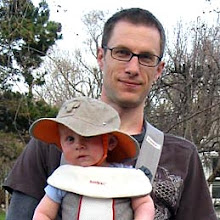"It's unfair that cyclists have to prove our innocence. I am ready to do anything, but if I have to use DNA to demonstrate my innocence, I will leave cycling, because it's obvious that cycling like that isn't worth it." - Oscar Pereiro
It may be unfair that pro cyclists have to prove their innocence, but when the entire peloton allows this crap to go on unchecked for years, it's nobody's fault but their own. So, yes, innocent until proven guilty is dead, thanks to Landis, Basso, Ulrich, et al. The only way to restore any shred of credibility to this sport again is by moving forward with the assumption that everyone is guilty until they can prove otherwise.
So, back to Pereiro. You were the runner up in last year's Tour, robbed of the biggest victory of your career by a doper (oh, sorry, alleged doper). If you rode a clean race and were cheated out of the biggest victory of your career, wouldn't you really want to do anything you possibly could to make sure your honesty and integrity remained intact? Especially considering you will be declared the winner of the Tour when (oh, sorry again, if) Landis is stripped of the title? Wouldn't you be the first in line to give DNA samples?
Of course you would, if it wasn't for the fact that you're just as bad as Landis yourself. If you weren't a doper, you would be the loudest proponent on planet Earth for stricter testing. Either that, or you really don't care about winning the toughest sporting event in the world, and your profession's highest honor. Which is more believable?

Friday, May 18, 2007
Subscribe to:
Post Comments (Atom)

2 comments:
Nah, vert. I disagree. It's up to the governing bodies. Put yourself in their shoes for a minute. A lot of them are just trying to feed their kids. Seriously.
I'm not putting all of the blame on the riders -- I realize the problem is systematic. There absolutely should be more focus on the governing bodies and teams, as well as the riders. Unfortunately, the riders are the public face of all of that, and I still think strict testing would serve to return some shred of credibility back to the sport, as well as put pressure on the teams and governing bodies to clean up their acts.
I'll have to respectfully disagree with the "food on the table" argument though, since any criminal could use that defense to justify their misdeeds.
Post a Comment